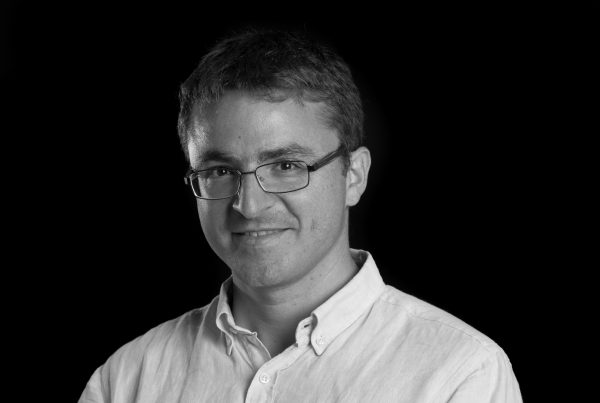Ruben Martin was born in Barcelona in 1976. He received his PhD in 2003 at the Universitat de Barcelona with Prof. A. Riera. In January 2004 he moved to the Max-Planck-Institut für Kohlenforschung as a Humboldt postdoctoral fellow with Prof. A. Fürstner and in May 2005 he undertook further postdoctoral studies at MIT with Prof. Stephen L. Buchwald. In September 2008 he joined the ICIQ as a group leader. His current research interests concern the discovery and development of synthetically useful organometallic protocols. Ruben Martin was promoted to Associate Professor in July 2013 and to ICREA Professor in October 2013. During his time as group leader he has been awarded with 4 ERC projects by the European Research Council and with the 2020 Arthur Cope Scholar Award, 2019 Novartis Chemistry Award, 2018 Banc Sabadell Award to Sciences and Engineering, 2018 Hirata Award, 2018 OMCOS Award or being on the Forbes List for the top50 most awarded spaniards, among the most recent.
Research interests
Our research is focused on the development of new catalytic protocols for producing synthetically relevant molecules from ubiquitous and simple precursors by activating inert, abundant and ubiquitous C-H, C-C and C-O bonds, probably the most fundamental linkages in nature. Additionally, my research has also been focused on the design of new catalytic protocols that utilize biomass-derived feedstocks such as carbon dioxide (CO2) for preparing valuable carboxylic acid derivatives under mild reaction conditions. During the last years, my research at ICIQ has provided solutions to relevant and challenging synthetic problems from both scientific and industrial standpoint, thus providing a new opportunities to build up molecular complexity from simple and abundant precursors
Selected publications
- Ni S, Vaillant FL, Mateos-Calbet A, Martin R & Cornella J 2022, 'Ni-Catalyzed Oxygen Transfer from N2O onto sp(3) -Hybridized Carbons', Journal Of The American Chemical Society, 144(40), 18223-18228.
- Yue WJ & Martin R 2022, "Ni-catalyzed site-selective hydrofluoroalkylation of terminal and internal olefins', ACS Catalysis, 112, 19, 2132-12137.
- Chen J, Wang H, Day CS & Martin R 2022, 'Nickel-catalyzed Site-Selective Intermolecular C(sp3)-H amidation', Angewandte Chemie-International Edition, 12;61(50):e202212983.
- Gu Y, Yin H, Wakeling M, An J & Martin R 2022, 'Defunctionalization of sp(3) C-Heteroatom and sp(3) C-C Bonds Enabled by Photoexcited Triplet Ketone Catalysts', Acs Catalysis, 12, 2, 1031 - 1036.
- Sun SZ, Cai YM, Zhang DL, et al. 2022, 'Enantioselective Deaminative Alkylation of Amino Acid Derivatives with Unactivated Olefins', Journal Of The American Chemical Society, 144, 3, 1130 - 1137.
- Lv XY, Abrams R & Martin R 2022, 'Dihydroquinazolinones as adaptative C(sp(3)) handles in arylations and alkylations via dual catalytic C-C bond-functionalization', Nature Communications, 13, 1, 2394.
- Buendia MB, Higginson B, Kegnaes S, Kramer S & Martin R 2022, 'Redox-Neutral Ni-Catalyzed sp3C-H Alkylation of alpha-Olefins withUnactivated Alkyl Bromides br', Acs Catalysis, 12, 7, 3815 - 3820.
- Romano C, Talavera L, Gómez-Bengoa E & Martin R 2022, 'Conformational Flexibility as a Tool for Enabling Site-Selective Functionalization of Unactivated sp(3) C-O Bonds in Cyclic Acetals', Journal Of The American Chemical Society, 144(26), 11558-11563.
- Day CS, Do CD, Odena C, et al. 2022, 'Room-Temperature-Stable Magnesium Electride via Ni(II) Reduction', Journal Of The American Chemical Society, 144(29), 13109-13117.
